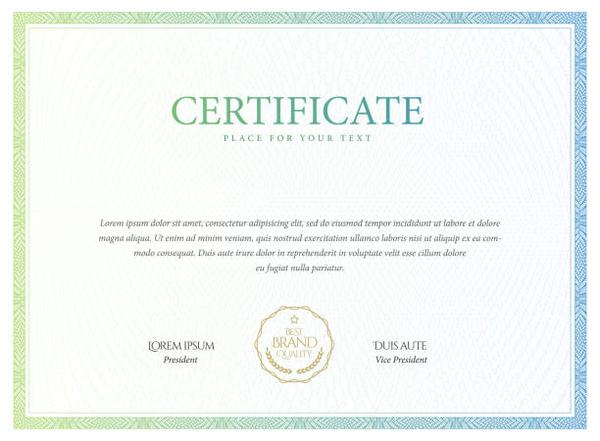The Authenticating Degrees system makes it simple to verify if applicants truthfully stated their education on their resumes. This is crucial, as fake credentials are becoming more prevalent among diploma mills.
This fraud makes it difficult employers to locate competent candidates. It also lowers the value of actual degrees.
Degree Verification Process
The process of verifying degrees is among the most important tools available for preventing academic fraud. Verifying degrees allows employers to verify that candidates have the necessary qualifications for the position. This also safeguards legitimate institutions and decreases diploma mill risk.
Online or on paper An easy and simple form will speed up the verification of degrees. Forms can help reduce time and effort for both the college and the student.
Students with disabilities benefit from online forms that provide clear directions and multilingual options. They are able to supply all the details required to complete the degree verification, without confusion or error.
For applications to international universities, many students and graduates have to authenticate their diplomas. AERC frequently requires the documents to go through lengthy authentication procedures. Students may not require authentication, but it’s important to check with the institution or company that is requesting the document. It is also recommended to have a backup plan for the case that your document is not authenticated. It is possible to obtain a second degree document that has a notary seal or stamp https://lambanggiagiare.net/.
Credential Fraud Prevention
Credential fraud is a multi-billion dollar business that impacts the image of universities as well as employers. It can damage an organization’s ability to recruit and hire qualified people and could cause liability issues. It also can affect the confidence and trust individuals have in their professions.
It’s a major worldwide issue due to the fact that it is very easy to acquire fraudulent credentials, including fake degrees. A lot of these scams are driven by high-pressure sales tactics and the promises of accreditation from fake institutions. The best method to avoid it is to perform thorough background checks, and inform hiring managers and other employees about the different types of degrees that are frequently fake.
Dock Certs and the Dock Wallet confirm degrees immediately using blockchain technology, which makes it much easier to verify that a person attended an institution. This could save companies time and money by reducing the necessity of phone calls to schools, which be lengthy time-to-reach. This reduces the risk of credential fraud, and ensures that companies are secure and efficient.
Verify educational credentials
The verification of the educational qualifications of candidates is a crucial element in the hiring process to ensure that they are genuine. However, false representations of educational credentials are not uncommon and can compromise the authenticity of both the hiring process and the reputation of a business. To avoid fraudulent claims, it is essential to utilize education verification and maintain detailed documentation of the procedure.
Typically, this means calling the college’s registrar’s department and requesting information about the candidate’s degree, attendance record, and GPA. The verification process can take a while dependent on the response of the institution and the complexity of the candidate’s educational history. Certain degrees may also have to be authenticated or legalized in the event that they are going to be used in another country. The consulate or embassy of the country where the degree will be presented will examine the document and confirm it is in compliance with the regulations. Often, embassies or consulates will either stamp or apply a sticker directly on the document in order to identify it as authenticated and legalized. Our notary services can aid in this process by creating a notarial certification which can be affixed to the original diploma.
Diploma Mills
A diploma mill is an illegitimate institution that sells fake degrees to students, without them having done any kind of work. While some openly promote themselves as legitimate universities, others are more subtle and difficult to detect. They might need a tiny amount of education, but not enough for them to be considered as legitimate academic work. They also provide degrees for significantly less time than what would be required by a legitimate institution. They usually operate on the internet and do not have a physical address.
These diploma mills pose a grave problem because they treat diplomas as a commodity that can be sold and bought. They are also a threat to the public, since they allow individuals to get jobs without having the qualifications required for the job. This is a key reason why background screening professionals should use their expertise to identify fake colleges and universities. They can compare information with lists of reputable diploma mills to find out if they are causing problems. They can then report their findings to their client. The client can then decide which steps to take.
Background Check for degrees
A college degree is required for many jobs in specific industries. Employers want to ensure that candidates’ resumes are authentic. Most jobs require a bachelor’s degree or more. It is unfortunately not uncommon for applicants to overstate their academic credentials on resumes. Many use diploma mills to buy fake degrees. Background checks are a way to verify the legitimacy of the education received and also help to prevent fraud.
Educational verification, also referred to as a transcript from a college search or education background check examines high schools, colleges, vocational schools and universities to confirm the candidate’s claimed education history. This includes the dates attended and the programs of study and graduation status. The verification process can take a long time because you have to make contact with the registrar at each school, and then wait for weeks or even months before receiving official documents.
Sometimes it can be difficult to find records due to the fact that people might have changed their names or attended a different country than the one they reside in now. But, a reliable background screening company will have in-house verifiers to reduce the delay in processing and improve the accuracy of the results.




